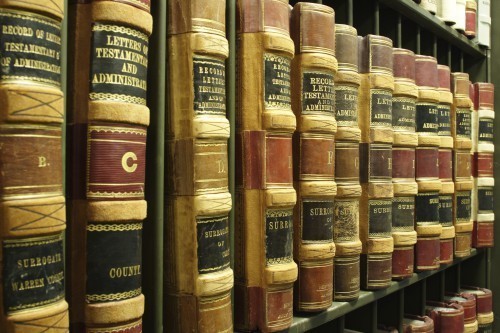Attorney at law or attorney-at-law, usually abbreviated in everyday speech to attorney, is the official name for a lawyer in certain jurisdictions, including Japan, Sri Lanka, South Africa, Brazil and the United States. In Canada, it is only used in Quebec.
Previous usage in Ireland and Britain
The term was historically used in the jurisdictions of England and Wales, Northern Ireland, and the Republic of Ireland. The title has been replaced by solicitor, but still appears in old statutes, in these jurisdictions.
England and Wales
The term was also used in England and Wales for lawyers who practised in the common law courts. In 1873, however, the Supreme Court of Judicature Act abolished the term «attorney», and attorneys were redesignated solicitors, which had always been the title for those lawyers who practised in the courts of equity. Attorneys did not generally actually appear as advocates in the higher courts, a role reserved (as it still usually is) for barristers.
In England and Wales, references in any enactment to attorneys must be construed as references to solicitors of the Senior Courts.
Northern Ireland and the Republic of Ireland
In both Northern Ireland and the Republic of Ireland, various pre-partition statutes dealing with the whole of Ireland and governing court structures, procedures, and court officers remain in force, such as the Supreme Court of Judicature Act (Ireland) 1877.
References in any statutory provision in force in Northern Ireland to attorneys must be construed as references to solicitors of the Court of Judicature.
In the Republic of Ireland, references in any enactment to an attorney (or proctor) are to be construed as a reference to a solicitor.
Attorneys in the United States
An attorney at law (or attorney-at-law) in the United States is a practitioner in a court of law who is legally qualified to prosecute and defend actions in such court on the retainer of clients. Alternative terms include counselor (or counsellor-at-law) and lawyer. As of April 2011, there were 1,225,452 licensed attorneys in the United States. A 2012 survey conducted by LexisNexis Martindale-Hubbell determined 58 million consumers in the U.S. sought an attorney in the last year and that 76 percent of consumers used the Internet to search for an attorney.
The United States legal system does not draw a distinction between lawyers who plead in court and those who do not, unlike many other common law jurisdictions (such as those of the United Kingdom which distinguishes between solicitors who do not plead in court and the barristers of the English & Welsh system and advocates of the Scottish system who do plead in court), and civil law jurisdictions (such as Italy and France, which distinguish between advocates and civil law notaries). An additional factor which differentiates the American legal system from other countries is that there is no delegation of routine work to notaries public.
Attorneys may be addressed by the post-nominal letters Esq., the abbreviated form of the word Esquire.
Specialization
Many American attorneys limit their practices to specialized fields of law. Often dichotomies are drawn between different types of attorneys, but, with the exception of patent law practice, these are neither fixed nor formal lines. Examples include:
Outside counsel (law firms) v. in-house counsel (corporate legal department)
Plaintiff v. Defense Attorneys (some attorneys do both plaintiff and defense work, others only handle certain types of cases like personal injury, business etc.)
Transactional (or «office practice») attorneys (who negotiate and draft documents and advise clients, rarely going to court) v. litigators (who advise clients in the context of legal disputes both in and out of court, including lawsuits, arbitrations and negotiated settlements)
Trial attorneys (who argue the facts, such as the late Johnnie Cochran) v. appellate attorneys (who argue the law, such as David Boies)
Despite these descriptions, some states forbid or discourage claims of specialization in particular areas of law unless the attorney has been certified by his or her state bar[4] or state board of legal specialization.
Some states grant formal certifications recognizing specialties. In California, for example, bar certification is offered in family law, appellate practice, criminal law, bankruptcy, estate planning, immigration, taxation and workers’ compensation. Any attorney meeting the bar requirements in one of these fields may represent himself as a specialist. The State Bar of Texas, for example, formally grants certification of specialization in 21 select areas of law.
The majority of lawyers practicing in a particular field may typically not be certified as specialists in that field (and state board certification is not generally required to practice law in any field). For example, the State Bar of Texas (as of mid-2006) reported 77,056 persons licensed as attorneys in that state (excluding inactive members of the Bar),[6] while the Texas Board of Legal Specialization reported, at about the same time, only 8,303 Texas attorneys who were board certified in any specialty.[7] Indeed, of the 8,303 certified specialists in Texas, the highest number of attorneys certified in one specific field at that time was 1,775 (in personal injury trial law).
Specialization in patent law is administered by the Office of Enrollment and Discipline of the US Patent and Trademark Office, which imposes stringent requirements for applicants to become registered as patent attorneys or patent agents.
